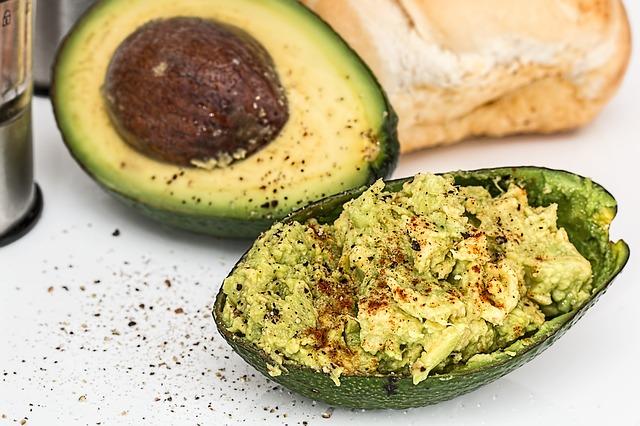
Super Bowl Sunday Diet Tips: 7 Ways To Eat, Drink, And Be Healthy On Game Day
Super Bowl Sunday marks the battle between two sets of rivals: the National Football Conference versus the American Football Conference; and us versus food. The steaming hot buffalo wings, cheesy nacho dip, and the endless rounds of beer all lead to a nutrition fumble on game day. However, adopting a few healthy tips can help us survive the Super Bowl spread, without sacrificing our taste buds.
The game lasts for about four hours, with the average American eating more than 6,000 calories by the end of the day. This suggests people are mindlessly indulging in copious amounts of food. Rather than forfeit our New Year’s resolution, kick off Super Bowl Sunday with this line-up of healthy eating and drinking tips.
EAT FRUITS AND VEGETABLES
Super Bowl staples, like nachos, buffalo wings, and pizza, will all be in attendance on Sunday, offering no nutritional value. Create balance by opting for fruits and vegetables (avocados count!) which contain few calories, but a lot of fiber. Keeping healthy food close by can prevent us from eating something unhealthy when we get the munchies.
A 2011 study published in Obesity Reviews found increased fruit and vegetable consumption led to reduced adiposity among overweight or obese adults. A diet rich in fruits and vegetables slowed down weight gain for participants. These foods are also rich in water, which gives them a low energy density, and are very filling.
GO NUTS
Raw almonds, cashews, and pine nuts in a shot glass can deliver heart health benefits, and help keep your portions in check. Most nuts are packed with protein, and contain heart-healthy substances, like unsaturated fats. Although it’s not exactly clear, it’s believed both monounsaturated and polyunsaturated fats — “good fats” — lower bad cholesterol levels, according to the Mayo Clinic.
In a study, presented at the 2006 American Chemical Society National Meeting and Exposition, researchers found pine nuts helped to suppress appetite. Three grams of pinolenic acid before eating breakfast slowed down the absorption of food in a group of women. The supplement led to a decrease in food intake by 37 percent in overweight participants. Choosing pine nuts over nachos can prevent over-indulging.
DON’T DRINK YOUR CALORIES
Avoid soda and heavy beers to limit calorie intake. Soda contains a significant amount of sugar, which is linked to weight gain. A 2001 study in Lancet found sugar-sweetened beverages are linked to a 60 percent increased risk of obesity in children, for each daily serving.
Drinking a cocktail or two can make a day’s worth of calories go down in a swirl. Instead, go for zero calorie skinny cocktail mixers, like RSVP Skinnies, which contain stevia and erythritol for sweetness. Six ounces of water, one ounce of liquor (either rum, vodka, or tequila) and stir or shake, leads to a healthy, low-calorie cocktail, without the added sugar.
DO DRINK WATER
Drinking water is the best way to stay hydrated during a 4-hour game. It can help boost our metabolism by 24 to 30 percent between a period of 1 to 1.5 hours, burning off a few calories. Drinking water will minimize the amount of calories we consume, and aid digestion. A glass of water before a big entree, or a few small plates, can help diminish our appetite, and keep us from taking extra servings.
USE SMALLER PLATES
Serving ourselves with smaller plates can automatically reduce how many calories we consume. In other words, to eat less food, serve in small portions, and on large tables. Also, be mindful of tableware and package sizes, which can influence how much food we eat. In a 2015 study, reducing the size of the plates and packages led participants to reduce 22 to 29 percent of their daily calories, or an average of 527 calories a day. The silverware we use can affect how much we eat on game day.
CHEW SLOWLY
Chewing our food, and not just swallowing it, can help us eat fewer calories. Our appetite and calorie intake is mainly controlled by hormones. After eating, our gut suppresses ghrelin, the hormone that controls hunger. It also releases cholecystokinin (CCK), peptide YY (PYY) and glucagon-like peptide-1 (GLP-1) (7), which are anti-hunger hormones. They send a message to the brain letting it know we’ve eaten, and the nutrients are being absorbed. Interestingly, this process takes about 20 minutes; eating slow gives our brain time to receive these signals.
EXERCISE
A quick workout right before the game will get our adrenaline going, and validate four hours of couch sitting. A run or doing some other cardio can help burn calories and aid our physical and mental health. Running a mile under 8 minutes can burn approximately 338 calories. Regular exercise will prepare us for game by limiting the build-up of calories, and shrinking belly fat.
* This article was originally written and published on http://www.medicaldaily.com/super-bowl-sunday-diet-tips-7-ways-eat-drink-and-be-healthy-game-day-410074

